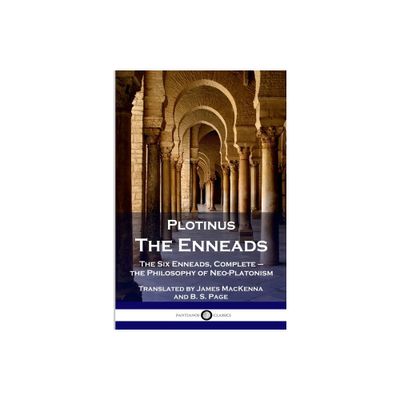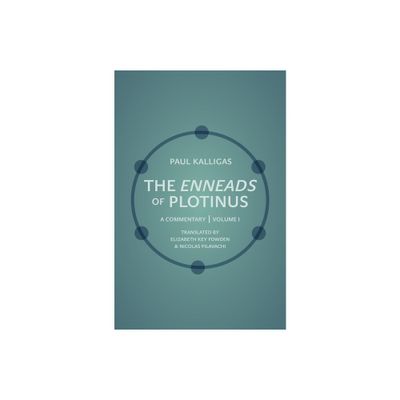Home
Plotinus, Neoplatonism, and the Transcendence of the One
Loading Inventory...
Barnes and Noble
Plotinus, Neoplatonism, and the Transcendence of the One
Current price: $65.00


Barnes and Noble
Plotinus, Neoplatonism, and the Transcendence of the One
Current price: $65.00
Loading Inventory...
Size: OS
*Product Information may vary - to confirm product availability, pricing, and additional information please contact Barnes and Noble
Plotinus (204-70) is the founder of Neoplatonism and its most significant thinker. He shaped late antique philosophy and significantly influenced the entire metaphysical tradition of the Middle Ages, Renaissance, and German Idealism. In this volume, Jens Halfwassen presents Plotinus’ life and work, as well as the most important aspects of his historical influence. Issues of key importance for the Neoplatonists—such as the interaction between Being and Thought, the ascent of the soul, and the interpretation of Plato’s theory of principles—are explained in detail in the course of outlining the Neoplatonic metaphysical system. The introduction outlines Halfwassen’s significant contribution to the study of Plotinus, paying particular attention to the differences between the current German and Anglophone approaches to the Platonic tradition.
The introduction contextualizes Jens Halfwassen’s research within the German tradition, and outlines differences and points of contact between the study of Platonism and Neoplatonism in the German- and English-speaking worlds. While the first part (Plotinus and Neoplatonism) is a translation of the standard German introduction to Neoplatonism, the four research articles in the appendix discuss some of the more advanced metaphysical questions addressed by Plotinus. (As an introduction, this volume presupposes little prior knowledge of Neoplatonism but takes the reader to a more advanced level than competing volumes.)
The introduction contextualizes Jens Halfwassen’s research within the German tradition, and outlines differences and points of contact between the study of Platonism and Neoplatonism in the German- and English-speaking worlds. While the first part (Plotinus and Neoplatonism) is a translation of the standard German introduction to Neoplatonism, the four research articles in the appendix discuss some of the more advanced metaphysical questions addressed by Plotinus. (As an introduction, this volume presupposes little prior knowledge of Neoplatonism but takes the reader to a more advanced level than competing volumes.)


















